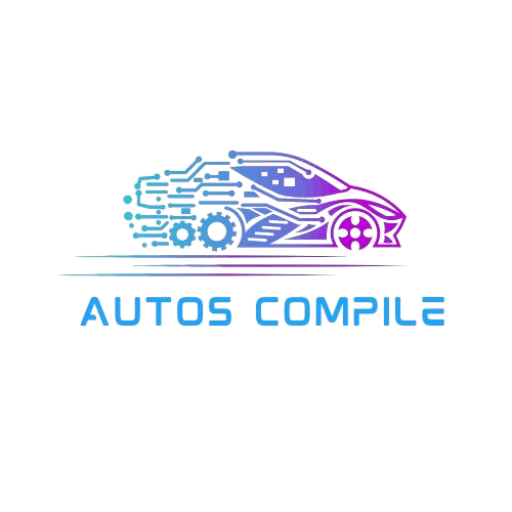In today’s job market, standing out is not easy. With hundreds of resumes going through applicant tracking systems (ATS), getting a recruiter’s attention in the first few seconds is crucial. That’s where a resume objective comes in.
A resume objective is a short, powerful section at the top of your resume. It’s your first chance to show who you are, what you want, and why you’re an excellent fit for the job. But here’s the key: your objective must relate to the job, not just your goals.
This guide will explain what makes a good resume objective, how to write one, and why it matters. You’ll get real examples, expert tips, and easy steps to create a resume that gets noticed, primarily if you’re based in the USA and applying to top companies.
What Is a Resume Objective and When Should You Use It?
A resume objective is a brief, focused statement that shows your career goals and how they align with the job you’re applying for.
When to use a resume objective:
- You’re a new graduate or entry-level job seeker.
- You’re making a career change.
- You’re re-entering the workforce after a break.
- You’re relocating and applying for jobs in a new city or state.
- You’re applying to a specific industry where clarity of intent matters.
Resume Objective vs Resume Summary: What’s the Difference?
A resume summary highlights your experience and achievements. It works best if you have many years of experience in the same field. A resume objective looks ahead. It shows what you want to do and how your background fits the new opportunity. If you’re just starting or shifting careers, use an objective. It gives direction and shows purpose.
Also Read: Idle stop temporarily interrupted adjust the climate to enable Honda Civic – Fix Settings!
Why a Good Resume Objective Is Important for U.S. Employers
Employers often scan resumes in the U.S. hiring landscape for just 6 to 8 seconds. That’s why your objective must deliver impact quickly.
A good resume objective:
- Grabs attention right away
- Clarifies your career intent
- Connects your strengths to the job
- Guides the recruiter to the rest of your resume
A clear objective saves time for recruiters in competitive fields like healthcare, tech, or customer service. It shows you know what you want and are serious about the role.
How to Write a Strong Resume Objective That Gets Results
Here’s how to create a resume objective that works:
1. Start With Your Job Title or Goal
Begin by naming the job you are applying for. This shows that you are focused and know what you want.
Be direct. Don’t just say, “Looking for a job.” Instead, name the role.
Example:
“Customer service representative looking to join a fast-paced call center.”
This tells the employer your goal and where you see yourself.
2. Add One or Two Key Skills
After the job title, mention a few skills that match the job. Look at the job post and pick the skills they want. These can be soft skills like “good with people” or hard skills like “CRM software.”
Keep it short. Use real words. Don’t list too many skills—just one or two strong ones that fit the role.
Example:
“Customer service representative with strong problem-solving skills and CRM experience.”
This lets the recruiter know you’re not just interested but ready to do the work.”
3. State How You’ll Help the Company
A great resume objective discusses what you can do for them, not just what you want.
Think like the employer. What problems are they trying to solve? How can you help?
Example:
“…ready to boost customer satisfaction and improve call response times.”
This shows that you are skilled and focused on results. It makes your objective employer-friendly, not just self-focused.
4. Keep It Short and Direct
Your resume objective should only be 2 to 3 lines long. It’s not your life story. It’s a quick pitch.
Avoid long words and fluffy phrases like “seeking to utilize my extensive background.” Use real words. Use plain language. Write the way people speak.
Keep each sentence under 12 words. Use one idea per sentence.
Don’t write this:
“A highly motivated and detail-oriented professional seeking to contribute to a reputable organization while growing my skill set in a dynamic work environment.”
Do this instead:
“Office assistant with Excel and calendar skills, ready to support daily tasks and team goals.”
5. Customize It for Every Job Application
Don’t copy and paste the same objective for every job. Change a few words to match each role. Look at:
- The job title
- The company’s values
- The top skills listed in the job ad
Then tweak your objective to fit.
For example:
If one job says “must be good with scheduling,” and another says “supporting executive calendars,” use those exact terms in each version.
Resume Objective Best Practices to Follow for Every Job Application
Be Clear and Specific
Avoid vague lines like “seeking growth opportunities.” Instead, say what you want and how you’ll help.
Tailor It for Every Job
Don’t reuse the same objective. Change it to fit each company and role.
Focus on Value, Not Just Goals
Hiring managers want to know what you can do for them. Speak to their needs, not just your dreams.
Use Action Words
Use strong verbs like:
- Improve
- Support
- Solve
- Lead
- Assist
- Organize
Keep the Language Simple
Aim for 8–10 words per sentence. Use plain English. Grade 3 readability is best for quick scanning.
Resume Objective Examples by Job Type and Situation
Entry-Level Resume Objective Example
“Reliable high school graduate seeking to assist in retail sales by using strong communication and time management skills.”
Career Change Resume Objective Example
“Experienced graphic designer shifting to UX design, aiming to apply visual thinking and problem-solving to build user-friendly websites.”
College Student Resume Objective Example
“Marketing student looking for an internship to apply classroom skills in brand research, content creation, and analytics.”
Stay-at-Home Parent Returning to Work
“Organized and dependable professional returning to full-time work, bringing strong multitasking and scheduling skills to an office support role.”
Military to Civilian Transition Objective
“Veteran with logistics experience seeking a warehouse manager role to streamline shipping and improve delivery times.”
Industry-Specific Resume Objective Examples for the U.S. Job Market
Technology
“Junior software developer with Java and Python experience, aiming to build scalable apps for a fast-growing tech firm.”
Healthcare
“Compassionate Certified Nursing Assistant (CNA) seeking to support patient care and hygiene in a busy nursing home setting.”
Customer Service
“Call center agent with strong phone etiquette and conflict resolution skills, ready to boost client retention in a high-volume environment.”
Education
“Recent education graduate passionate about helping kids learn, seeking to support classroom teachers in early childhood education.”
Retail
“Friendly team player with POS experience aiming to increase daily sales and ensure top-level service in a national retail chain.”
Common Mistakes That Can Ruin Your Resume Objective
Avoid these to make your objective stand out:
Being Too Generic
What’s wrong:
A vague sentence like “Looking for a job where I can grow” doesn’t tell the hiring manager anything helpful. It’s broad and unclear.
Why it fails:
It shows no real goal, no skills, and no effort to match the job.
Better example:
“Seeking a receptionist role to greet clients and manage calls in a fast-paced office.”
Why this works:
It names the job, mentions duties, and uses real action words. It shows you know what you want and what you can do.
Talking Only About Yourself
What’s wrong:
Saying things like “I want to gain new skills” or “I’m looking for growth” focuses only on your needs.
Why it fails:
Companies want to know how you can help them. Not just what you hope to get.
Better example:
“Looking to support daily office tasks while learning new systems.”
Why this works:
It shows you’re ready to contribute while growing on the job. It’s balanced.
Writing Long, Hard-to-Read Sentences
What’s wrong:
If your objective is one big block of text, it won’t get read. Long sentences are complex to scan. They hide key points.
Why it fails:
At first glance, hiring managers spend just 7–10 seconds on a resume. If your words blur together, they’ll skip to the next applicant.
What to do instead:
Keep each sentence short—10 to 12 words max. Use 2 to 3 lines total. Break ideas into simple chunks.
Bad:
“Motivated individual seeking a challenging opportunity to utilize multiple skill sets in a dynamic and growing organization.”
Good:
“Warehouse worker with forklift skills. Ready to help pack, move, and track items.”
Copying Job Descriptions Word-for-Word
What’s wrong?
Taking text straight from the job post and pasting it into your objective may feel smart, but it’s easy to spot and looks lazy.
Why does it fail?
It doesn’t show your voice, which makes it difficult for hiring teams to tell if you understand the job.
What to do instead:
Use keywords from the job listing, but write in your own words.
Bad:
“Looking to join a team that values innovation, growth, and synergy in a customer-driven environment.”
Good:
“Retail team member with sales and stocking skills. Ready to serve customers and support store goals.”
How to Make Your Resume Objective Even Stronger
Here are more tips to help your objective shine:
Use Keywords From the Job Description
Look at the job ad. If they want “time management” or “team player,” and you have that, include it.
Match Your Objective to the Job Title
If the job says “Sales Associate,” use that term. It helps your resume pass ATS filters.
Align With Company Culture
If the company is formal, keep your tone sharp. If they’re casual (like a startup), you can relax your tone a bit.
Pair It With a Strong Resume Design
A clear objective works best when the rest of your resume is clean and easy to scan.
Final Thoughts: Make Your Resume Objective Work Hard for You
Writing a resume can feel tough, especially in the fast-moving U.S. job market. But your resume objective doesn’t have to be. This short line at the top of your resume tells U.S. employers what role you want and how you can help. It helps you stand out, even if you’re just starting out or changing careers.
Keep it short. Use simple words. Match it to the job. Show how your skills solve real problems. And most of all, make it about them, not just you. In the U.S., hiring managers look at resumes quickly. So, make those first few lines count.
Ready to Write a Resume That Gets You Hired?
Start strong. Build a resume that highlights your skills, goals, and the value you bring.
Try the Jump Resume builder. It helps you craft clear, job-ready resumes that stand out in minutes.

